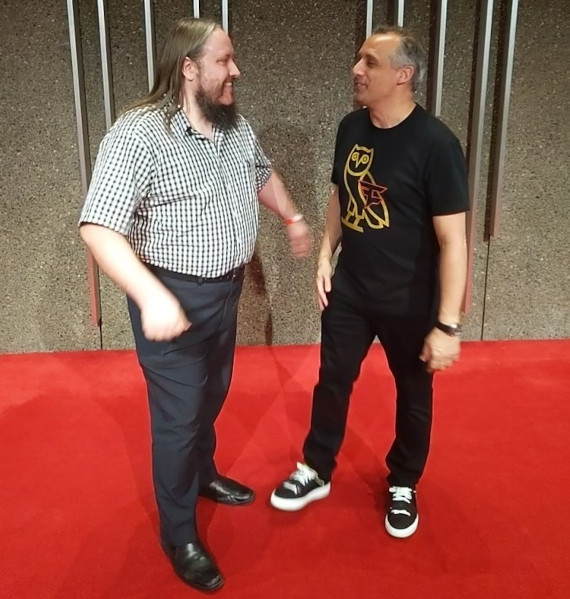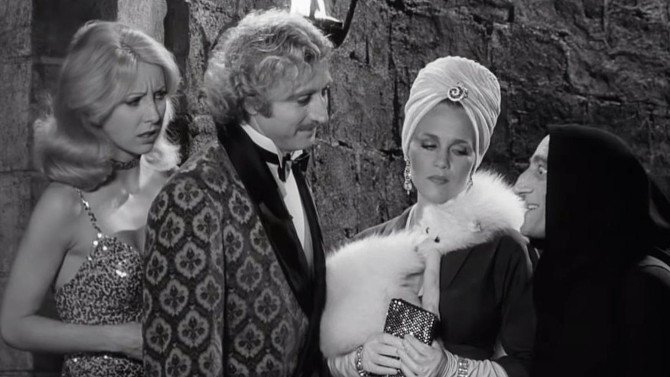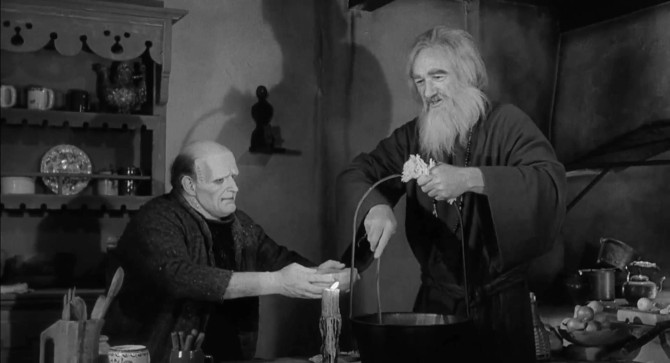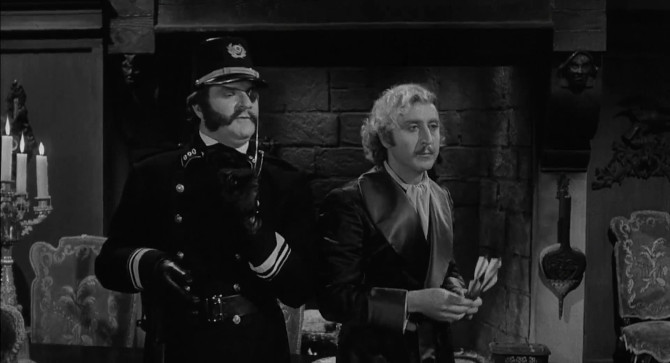I was fortunate enough to get a quick interview with Joe Gatto after his first ever comedy show in Ottawa on March 3rd, 2023. For those of you who have somehow missed him over the years, Gatto has brought joy and hilarity to the world with buddies Sal, Q, and Murr on the comedy series Impractical Jokers. After nearly a decade on television (creating worldwide catchphrases like: “Scoopski potahtos”, “Larry!”, “Up your ass and to the left”, “Who vants to paint!”, as well as so many others), Joe parted ways with the Jokers after nine seasons to focus more on family. Despite this, you’ve had ample chances to stumble upon him – sometimes with his buds as the Jokers go viral on Youtube, or by way of his very active social media accounts. . . and, of course, on his comedy tours.
His first time in Canada, he regaled the audience with a fantastic combination of outright jokes, venue improv, past stories, and his own unique brand of physical comedy. After nearly a two hour show (which included his friend and opener Jiggy – who has also made some appearances on Impractical Jokers), the audience left with a number of jokes and stories that could make anyone laugh, as well as several local gags that only those attending would get (who knew Canadian royalty was sitting in the theatre box).
Though Gatto spoke a lot about Star Wars and made a stellar observation about Dracula (how can his hair and bow tie knot be so perfect if he can’t see himself in a mirror?), he revealed that his all-time favourite film is Mel Brooks’ Young Frankenstein. Citing his absolute love of satire, he went on to explain that this movie is so good because it can stand on its own two feet – as most satires often lose track of the storyline. Instead, what was crafted by Brooks and Gene Wilder (who was a major part of the writing process), satirized the Frankenstein features perfectly, but never forgot that a legitimate story was also needed to achieve their goal.
As much of an homage as it is a parody, Mel Brooks and Gene Wilder (who co-wrote the screenplay together) are able to exhume great comedy from the horror subject matter (demonstrating their knowledge and love of the legendary monster movies of the 1930s and 40s). Wilder plays Dr. Frederick Frankenstein, the grandson of the infamous mad scientist, who is trying to break away from the stigma of having a diabolical, villainous family member. It has led him to pronounce his name as ‘Fronkensteen’ instead of in the more accepted fashion.
He is soon tracked down by a lawyer and is told that he has inherited some property in Transylvania. The man leaves his wealthy, snooty and uptight fiancée Elizabeth (Madeline Kahn), making the long trek to the foreign locale.
After disembarking from the train (that feels very similar to the train that he took in the US – only that things are repeated in German this time), the doctor is met by a hunchbacked, bug-eyed servant Igor (Marty Feldman), who insists that it is pronounced ‘Eyegor’ after hearing the farcical pronunciation of Frankenstein. As they return to the carriage, the doctor is then introduced to his buxom new assistant Inga (Teri Garr).
The abode is a gargantuan gothic castle, replete with drafty halls, precarious staircases and a stern, unfriendly housekeeper named Frau Blücher (Cloris Leachman). After settling into the eerie stone home, Frankenstein and his new assistant hear a soulful piece of music coming from behind a bookcase. They investigate and discover the hidden lab of the man’s grandfather.
After devouring his scientific notes, the once conservative doctor attempts to continue his family’s nefarious legacy – and he creates his own Monster (Peter Boyle). Planning on making a seven foot tall man with a genius brain and saintly attitude, his dim-witted servant destroys the needed brain, instead nabbing the one labelled Abi Normal – or Abnormal, for those of us who can read. Like the original films, the monster is super strong, though he fears fire.
The massive Monster riles up the townsfolk, as they once again fear the rampage of a hideous beast that carries the name of Frankenstein. To quell the fears of Inspector Kemp (Kenneth Mars) and the community at large, the doctor teaches the lumbering figure several tricks. Putting on a Broadway-style performance, the two orchestrate a song and dance routine to the classic “Puttin’ on the Ritz”, though exploding bulbs rile the creature, turning him angry.
To further complicate matters, the doctor has become infatuated with his assistant Inga. After the two enjoy a roll in the hay, they learn that his fiancée will be arriving shortly at the castle. Will Doctor Frankenstein be able to solve these two precarious situations, or will he lose his creation as well as his new love?
Though easily watchable on its own, you will gain an even richer appreciation for the film if seen after watching the original Universal horror franchise. Young Frankenstein follows a relatively similar plot path, perfectly spoofing several memorable moments from the original motion pictures. The scene where the monster stumbles upon a young girl playing with daisies is a clear ode to the original 1931 movie, while the iconic Blind Man (Gene Hackman) scene is a classic sendup of a moment from the 1935 sequel, The Bride of Frankenstein. Perhaps less noticeable is that Mars’ Inspector is a clear take on Lionel Atwell’s Inspector Krogh in Son of Frankenstein (1939) – right down to the dart scene. These are just a few of the many stand out homages to the early Universal flicks.
Brooks and Wilder, utilizing the Frankenstein stories, capture a perfect tone with this one. Encompassing both the horror from the original features as well as the comedy that comes from the far out situation, their script and improvisations are chock full of sexual double entendres, zany characters with bizarrely comedic elements, and classic send ups of the original horror pictures. One scene that must be highlighted further is the above mentioned castle dart scene between Frankenstein and Kemp. This single moment encompasses running gags, random improvisation (a cat being hit by a dart), the competitive nature of men in sports (cheating anyone?), and a closing gag that will have you gasping for air.
Bringing together a wonderful cast, each character has something that will bring a joyous tear to your eye. Wilder’s Frankenstein is a brilliant yet wacky doctor who is constantly fighting against his family legacy. This is perfectly encapsulated by the opening scene, where he is lecturing to a class but is then questioned by a nosey student on the aspects of his family past. The moment brings together great acting, physical comedy and sharp dialogue. Boyle is equally as impressive. It is difficult to bring a character to life that just lumbers around without speech, yet in his capable hands, he is able to add a human touch to the monster – making us feel sympathetic toward him. Feldman’s Igor is simply classic. Featuring a beautiful piece of improvisation, it was he who came up with the idea that his hump would keep moving back and forth between his shoulders until those around him noticed. Every time Leachman’s character’s name Blücher is said, the horses react in dismay. While Mars’ Kemp spoofs Son of Frankenstein, it is also infused with a clear send up of Peter Sellers’ suppressed Nazi Dr. Strangelove (in Dr. Strangelove), with his nearly indecipherable thick German accent and uncontrollable arm gestures bringing us back to the character that was created ten years earlier. The two sex symbols of the film are equally as entertaining. It is rivetting to watch Kahn’s Elizabeth transform into a sort of Bride of Frankenstein over time, while rich comedy comes from the flirtations between Garr and Wilder.
Brooks took his film to the next level of paying tribute to the original classics. He tracked down Ken Strickfaden, who designed the machinery for the lab in the original Frankenstein films. Learning that he still had all of it in his garage, he rented it and gave the man a screen credit (something he never received for the original movies). It adds another dimension to the realistic horror facets of the motion picture while also highlighting the loving aspect of this satire. This, along with it being filmed in black and white, as well as utilizing transitions that harkened back to the 1930s, truly place us in the realm of the original horror classics.
Young Frankenstein is a brilliant piece that still holds true all these years later. It has had a lasting impact on the comedy genre, though impressively has also touched the rock industry. Taking a break one night, Aerosmith watched the film back in 1974. The next day, Steven Tyler wrote “Walk This Way”, having been inspired by Feldman’s first scene in the movie. It is a superb motion picture that works from beginning to end. No matter how you pronounce it, Young Frankenstein is a classic comedy. So, make sure to get back in the saddle (not Blazing Saddles – that’s another Brooks/Wilder film) and enjoy having yet another roll in ze hay.






